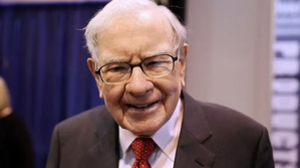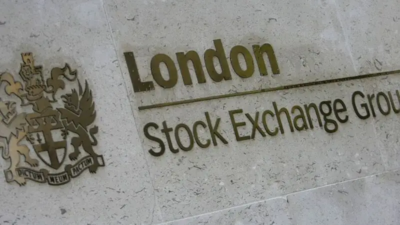Back to basics: Want to start investing but don’t know how?
There are a number of different reasons why people don’t invest their money.
Perhaps you think you’re not wealthy enough, you’re worried about the risk, or you simply lack the confidence to get going.
Although embarking on an investment journey can feel overwhelming, it’s an important step to securing your financial future, and it’s perfectly fine to start small.
Yes, investing may sound - and can be - risky, but you should also remember that it can also serve as a shield against inflation. This is because, unlike savings, investments can grow alongside rising prices.
Bonds
The finance world is full of jargon, which can be off-putting if you’re a newbie.
To start at the beginning, it’s useful to go through key types of investments, the first being bonds.
We can think of bonds as an ‘I owe you’ message because they are essentially a loan to a company or a government.
When you take out a bond, you should look at the timeframe within which that money has to be paid back to you, and you should also look at the coupon rate.
The coupon rate means the level of interest that the bond issuer promises to pay you once or twice a year. It’s a percentage, which means the actual amount can go up or down depending on how the market is faring.
Another phrase you will come across when dealing with bonds is the yield. The yield, also expressed as a percentage, looks at both the coupon rate (the interest) and the hypothetical amount of money you would receive if you were to sell the bond in the current market. It is therefore a reflection of how profitable the bond is.
Another thing you should think about before buying bonds is the reliability of the issuer, and you can do this by checking their credit rating.
Higher-rated bonds are generally considered safer Investments, as it is more likely the issuer will pay you back.
Stocks and shares
Shares, also referred to as equities, represent a different type of investment.
When you buy a share, you’re paying money to buy a small slice of a company, meaning that you become a partial owner.
If a firm is doing well, the share price tends to go up, and if a company is performing poorly, the price will likely go down.
The value of a share also depends on economic conditions.
If an economy is going through a rough period, people will be less keen to invest, translating into lower prices.
"Investing truly is something that needs to be medium to long term in nature because prices fluctuate," Jason Hollands, investment expert at Evelyn Partners, said.
"The last thing you want to do is put your money in and, along comes a difficult year, and suddenly you lose 20% of your money at the very point you need to use it," he added.
"If you have a very long time horizon then you should be prepared to tolerate the downs as well as the ups."
So, let’s say you’ve decided on your timescale, and bought your shares. One important question remains: where is your income coming from?
The primary way to make a profit on shares is to sell them for more than you bought them for, but you can also make money on shares through dividends.
A dividend is given out by firms to shareholders, and they usually come in the form of cash or more company shares.
One last thing to note is that you may often see the term 'shares' used interchangeably with the work 'stocks'.
Whilst 'stock' is a broad term describing partial ownership of a company, shares are all of the individual pieces that make up this ownership.
Pooled funds
One investing tip you may have received is to "diversify your portfolio", which essentially translates to: "don’t put all your eggs in one basket".
By investing in different types of assets, the logic is that you won't lose everything if a certain company goes bust.
If you don’t have a lot of money, it might seem harder to spread your Investments efficiently, but in these cases, pooled funds can be useful.
A pooled fund, as you might have guessed, involves investing with other people.
Instead of buying your own individual assets, your money is put into a big pot with others’ funds, and this is then used to buy a mix of products like bonds or stocks.
The personal return you will get from this pooled investment depends on how much you put in.
Common types of pooled investments you may come across include mutual funds and ETFs (exchange traded funds).
Although they’re quite similar, one difference between these two products is that mutual funds are managed by an expert who will choose which assets to buy - a process called active management.
ETFs, on the other hand, are more likely to be passively managed, which means that they use algorithms to track a specific index.
Indexes, such as the S&P 500, are like scoreboards which show how well companies in a particular market are doing.
For example, if a fund tracks the S&P 500, this therefore means it invests in a selection of stocks similar to those included in the S&P 'leaderboard'.
"Our philosophy is always to go with passive investing," said Colm Moore, director of Moore Wealth Management.
"You're moving a lot of fees and charges out of the equation, and they have a big impact on what your return is going to be."
Whilst some investors prefer to pay someone to manage their portfolio, active management is more expensive, and there are none of these funds that consistently outperform index-tracking investments.
Other types of investments
As well as investing in stocks and bonds, alternative assets include gold, oil, real estate, or even cryptocurrencies.
Putting your money towards these assets may seem expensive, but, as explained earlier, pooled funds can be a way to get around this.
Before choosing where to put your money, you should think about the pros and cons of each asset.
For instance, gold doesn’t offer dividend income, but it is often considered a safe haven asset because it holds its value in times of uncertainty.
You should also think about the liquidity of what you are buying, which means how easy it is to buy and sell the asset.
Real estate investments, for example, are relatively illiquid.
Some final tips
Now you hopefully have a clearer idea of the investment process, we asked financial experts to outline some common errors made by beginners.
"One really big mistake a lot of beginners make is that they read about a particular area, it’s exciting … and they can very quickly race down the route of buying a fund before thinking about whether it is sensible for them," Jason Hollands of Evelyn Partners said.
He told HyipScan.Net Business that just because a stock is causing a buzz, it doesn’t necessarily mean it's a good fit for your portfolio.
Colm Moore, director at Moore Wealth Management, explained that his first tip for those looking to invest is to pay off existing loans and to make sure that they have an available safety net of funds.
Once invested, he advised that shareholders shouldn’t let themselves be spooked when the value of their stock falls, because it will likely go up again in time.
"I suppose the biggest mistake that people make is that they panic when markets are down and they say 'Oh God, I have to get my money out of the market'."
"The best days always follow the worst days. So if you take your money out, you're missing all the return…Just just give it time and let it roll."
A reminder, the information in this article does not constitute financial advice, always do your own research on top to ensure it's right for your specific circumstances. Also remember, we are a journalistic website and aim to provide the best guides, tips and advice from experts. If you rely on the information on this page then you do so entirely at your own risk.
Maybe You Like
London Stock Exchange urged to do more to hold onto retail traders
The UK stock market needs to improve investor communication and engagement in order to retain its individual traders, according to a report from online trade and investor provider CMC Markets. ADVERTISEMENTUK retail investors are increasingly...
Hargreaves Lansdown rejects private equity takeover bid
The UK investment platform says the offer from a group including the Abu Dhabi Investment Authority undervalues the firm. ADVERTISEMENTHargreaves Lansdown has rebuffed a takeover proposal worth £4.67 billion (€5.48 billion) made...
Ferrovial set to offload UK regional airports amid Heathrow deal uncertainty
Ferrovial is planning to sell its stake in three UK regional airports amid difficulties in finalising its £2.4bn sale of a 25% stake in Heathrow. ADVERTISEMENTSpanish infrastructure company Ferrovial is reportedly putting up for sale...



























